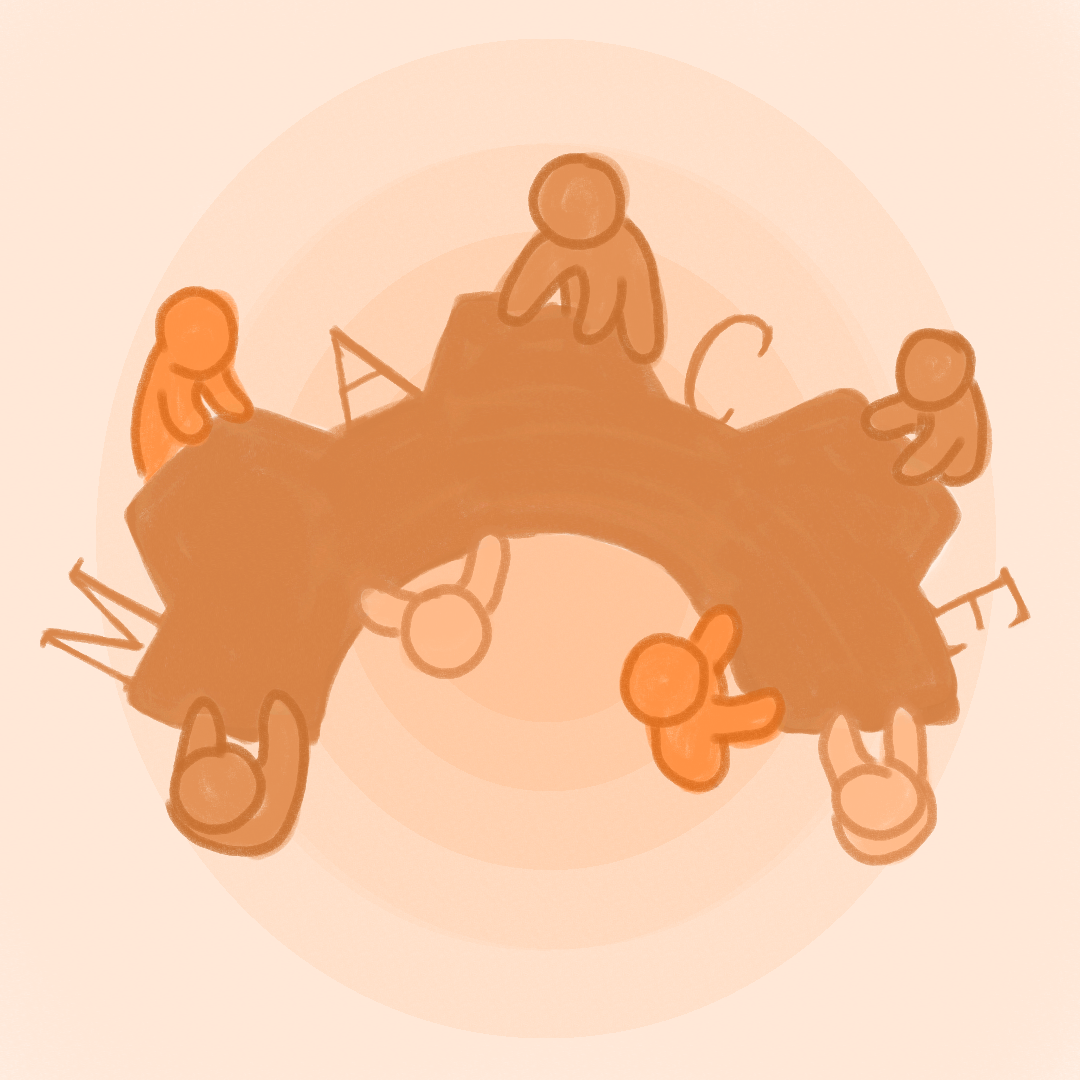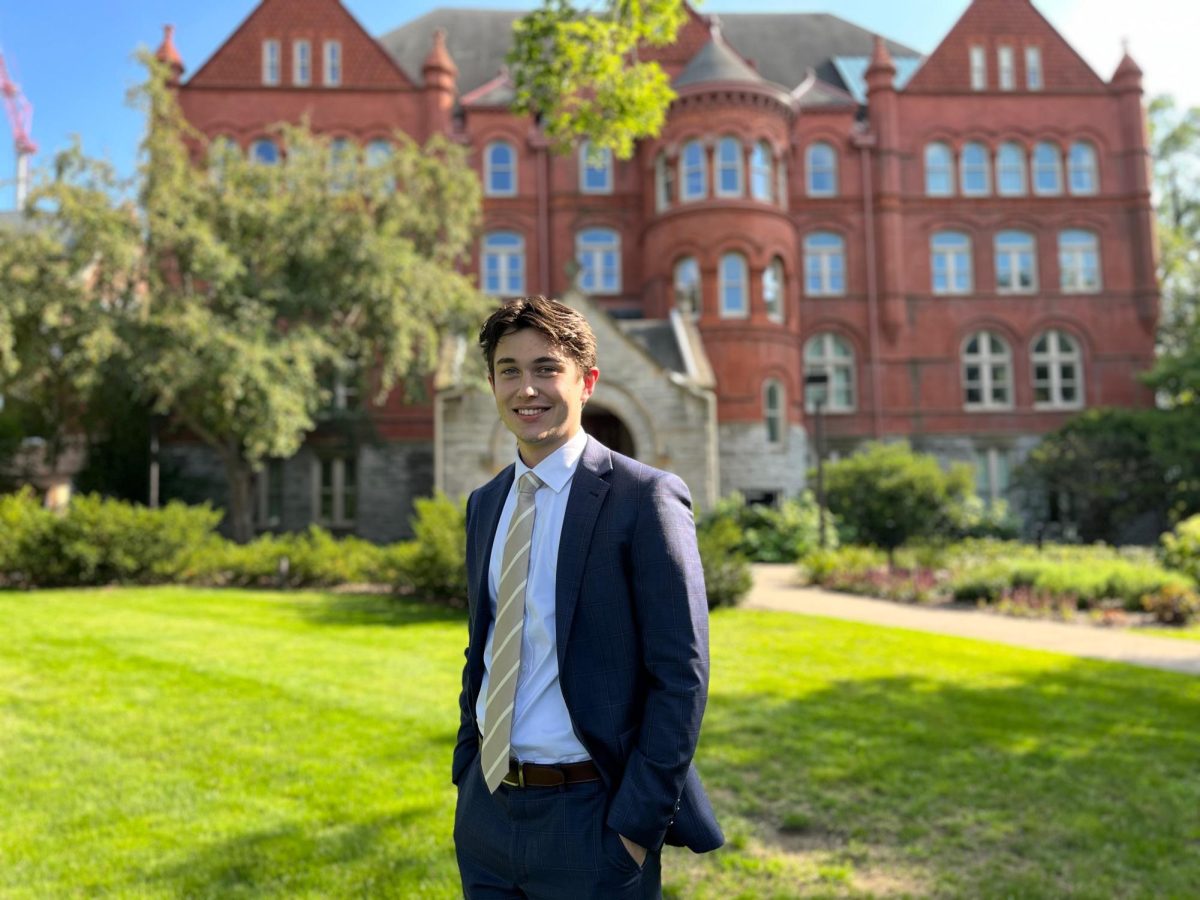Written by M.L. Kenney & Margaret Moran
This year’s Black History Month keynote address, titled “Black Joy Is a Tool Against Oppression,” was delivered by lawyer and activist Dr. Nekima Levy-Pounds from 7-9 pm in the Alexander G. Hill Ballroom.
Levy-Pounds, formerly of the University of St. Thomas School of Law, is perhaps best known in the Twin Cities for her service as Minneapolis NAACP President, her participation in Black Lives Matter protests and her mayoral campaign in Minneapolis this past year.
Levy-Pounds shared her thoughts on the role white people play in both oppression and activism. The speech began with a critique of the American education system and the lack of attention it pays to the history of slavery and racism in the United States. Levy-Pounds recalled her own experience in predominantly white institutions – including the University of St. Thomas, where she taught until 2016, and the Massachusetts boarding school she attended in her youth.
The curriculum at these schools was lacking in their representation of black history. As a result, Levy-Pounds began searching for books and archives on the subject, which she said taught her about the resilience of her people.
“Any person of color sitting in here right now carries an emotional toll just being on a predominantly white campus and trying to get their education,” Levy-Pounds said. “It’s an extra tax that you have on your back as a person of color that’s invisible to the average person. And sometimes it’s made worse by people who are saying that they care, but there’s no evidence that they care.”
Levy-Pounds seriously critiqued the inaction of these “white allies”.
She referenced Dr. King’s criticism of the gradualist approach to the civil rights movement championed by white moderates during the civil rights movement and drew a connection to modern-day self-identified “allies.”
“Some may think, ‘Well, I went on a march with Black Lives Matter! I’m an ally!’” she said. “Really? Well, what did you risk? I’m glad you came on the march, but you get to go back home in your predominantly white neighborhood, where you have access to all your privileges and can continue with your normal life. And meanwhile the systems, and the structures, and the policies, and the laws and oppressed people of color remain in place.”
Her suggestion to white students was to embrace discomfort and to find respectful ways to take action. She highlighted public policy as a specific avenue where white people could step up and better support people of color.
“How many white people do we see at the legislature saying, ‘We want to see this law surrounding the use of deadly force off the books, or altered in some way’?” she said. “I personally haven’t seen it.”
For these reasons, Levy-Pounds remained critical of the white presence in the audience.
“Be sure that you are putting your privilege on the shelf,” Levy-Pounds urged. “because we’re skeptical. At least I am. When I go into a space for the cultivation of black spirit and white people are there, I’m skeptical.”
Levy-Pounds’ discussion was not one of instruction on how to create “Black Joy”, but instead on its potential to take place even in moments of great strife, as a mechanism of self-care.
“I don’t know how many times I’ve been in protests and demonstrations where we’re talking about something very serious,” she began. “at the end of the night, after hours of emotional toil and labor people are ready to pass out ‘cause you’re tired, you’re overwhelmed, you didn’t know if you were gonna be arrested that night,”
Then, she recalled, something changes.
“Somebody turns on music and suddenly, it’s a dance party,” she said. “And I say, ‘How can someone go from standing up, speaking chanting, getting maced . . . to settling ’round here dancing and partying and rapping and singing?’ We are cultivating Black Joy in the midst of oppression, and that Black Joy is what allows us to come back the next day and sometimes spend the whole night.”
Levy-Pounds’ description of Black Joy “cultivating black spirit” surprised some students, who had never considered the role cheer and amusement could play in times of distress.
“I feel that joy is usually placed in [the] self-care section as a way to possibly recharge yourself but not as something you draw from to keep doing work,” Isabel Velazquez-Acero ’18 wrote in an email to The Mac Weekly. “I usually think [of] protests as solemn or serious events, but they can be filled with joy…I hadn’t thought about [it] before.”
Lealtad-Suzuki Center director Jason Jackson considered the importance of Black Joy in an email to The Mac Weekly.
“Black Joy allows for black bodies and minds to be refueled, so that we may then more strongly reengage in the fight to exist and change our (and others’) conditions,” Jackson wrote.
“Reflecting on Nekima Levy-Pounds’ talk, I am resolved in the fact that Black Joy asks us to pull from the strength of our ancestors, give our ourselves enough grace to love and accept love, and that most importantly Black Joy is a key to our survival.”






Rachel McLean • Sep 11, 2019 at 1:16 pm
Excellent read, I just passed this onto a colleague who was doing some research on that. And he just bought me lunch as I found it for him smile Thus let me rephrase that: Thank you for lunch!
Blake Parr • Sep 10, 2019 at 7:40 am
thank you for sharing with us, I conceive this website really stands out : D.
Emma Avery • Sep 7, 2019 at 3:50 am
I’m really impressed with your writing skills and also with the layout on your weblog. Is this a paid theme or did you customize it yourself? Anyway keep up the nice quality writing, it is rare to see a great blog like this one these days..
Michael Milionis • Jul 22, 2019 at 3:10 pm
Mass parsite http://bit.ly/2W9CVkn